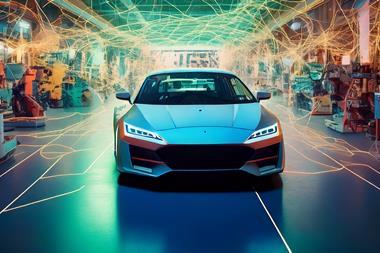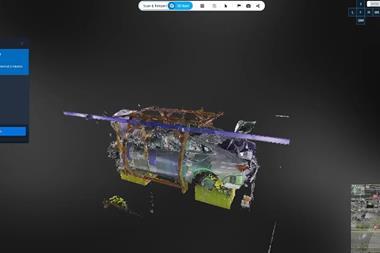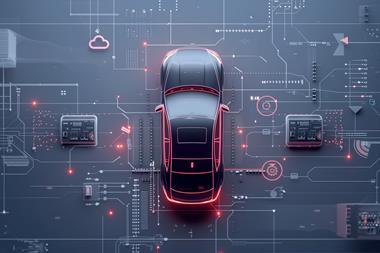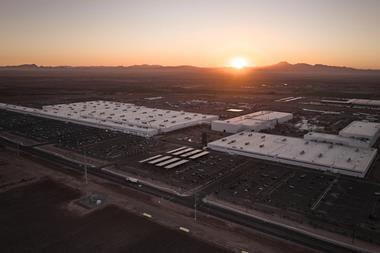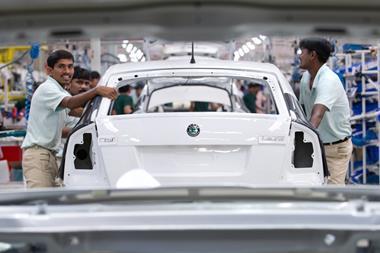Many promising start-ups are looking to crack the electric vehicle segment
 Of all the disrupting forces threatening to unseat established automakers, the rise of electric power could be first to strike. After all, this is a proven technology that can be swiftly adapted, engineered and marketed by any start-up company with a knack for raising finance.
Of all the disrupting forces threatening to unseat established automakers, the rise of electric power could be first to strike. After all, this is a proven technology that can be swiftly adapted, engineered and marketed by any start-up company with a knack for raising finance.
The ringleader is Tesla. Rising from nothing in 2003, it has now become a Wall Street darling whose soaring share price valued it above some of the biggest names in automotive, such as General Motors and Ford. And while Tesla is yet to be consistently profitable, the fact that it’s still here and outselling established premium brands in the (admittedly niche) large luxury saloon category, proves it can be done. As soon as it was clear the Tesla Model S saloon was a success after its launch in 2012, the copycat companies began.
A testing yearMotor shows welcome new brands showing dramatic and often convincing electric or hybrid car concepts. Names like Faraday Future, Lucid, Hybrid Kinetic, Fisker, SF Motors, Detroit Electric, Nio, Byton and Xpeng have made headlines. Impressive claims for range, interior connectivity and future autonomous capability have been outlined, and executives poached from German premiums, or from Tesla itself, paraded. Finance has been secured, and production plans are “well advanced”. The claims will be tested as we head into 2018 – the year many of these companies promised their cars would be launched.

Between the glossy launches lies what those in the innovation business call the ‘the valley of death’. This is a vast gulf representing the challenge of getting from an idea, establishing a brand and making it all happen. Even a relatively established brand like Tesla is still arguably mired in the valley as struggles to ramp up production of its Model 3 mainstream electric car. “I can’t help thinking of Tesla – will they ever make money from battery electric vehicles (BEVs)? If they can’t, it’s going to be really tough for those entering the market,” commented Al Bedwell, head of powertrain at the analyst firm LMC Automotive.
Another problem for the start-ups is that the well-established OEMs, which were stung by Tesla’s success in a market they had ignored, are now hitting back with wide-ranging BEV plans. This year, for example, will see the market introduction of Audi’s e-tron SUV and Jaguar’s I-Pace – two electric SUVs that will challenge Tesla’s Model X. Meanwhile, Volkswagen promises it will be making 1,400 EVs every day just from its Zwickau plant in Germany by 2022. “I think it’s going to be tough for the likes of Nio and Dyson once the established OEMs start throwing serious resource at the EV space,” Bedwell added. “They need to have some outstanding technology in order to establish themselves as serious players.”
Out of the electric start-up list promising to challenge Tesla and the traditional automakers, almost all are from China. If a new EV brand can establish itself anywhere in the world, it will likely be here due to the supportive government. Authorities have leveled the playing field by forcing established OEMs to sell a certain quota of electric cars. So called New Energy Vehicles (NEVs) must account for 10% of sales by 2019, and 12% in 2020. By 2025 the government wants that to increase to 20%, before reaching 40% by 2030. China is already the world’s largest vehicle market, is fast becoming the global centre of production for automotive batteries, and is a development hot-spot for all the technologies needed to make cars appealing, such as the touchscreens and mobile-style connectivity.
 Nio could be among the most promising start-ups in the EV segment
Nio could be among the most promising start-ups in the EV segmentThe top dogsNio is a new Chinese brand targeting the mass produced premium market. After launching its first car in December 2017, it is arguably leading the pack to one day challenge Tesla. The ES8 7-seat SUV boasts a range of 311 miles and costs 448,000 yuan (US$71,000).
Led by entrepreneur William Li, the company has raised more than $1 billion from investors that include Internet giant Tencent. It has spent heavily on targeted marketing, running a team in the Formula E electric racing championship. Nio has linked up with Anhui Jianghuai Automobile Co (JAC), which will produce cars in Hefei, Anhui province, 900km west of Shanghai. Speaking to AMS, Nio’s co-founder Jack Cheng revealed that the goal is to make 100,000 units a year.
Ticking more boxes for start-up credentials, it has around 400 people working in California to test autonomous functions and develop connectivity. Back in China, the company plans to set up a network of 1,100 fast charging stations by 2020, another strategy from the Tesla play-book, and also plans to allow customers to swap out batteries for fresh ones at ‘power-swap’ stations. Eventually the car will be sold in other markets, starting with the US. “Among Chinese premium EV start-ups, Nio is in the pole position, a cut above the rest,” stated Michael Dunne, president of China-based analyst firm Dunne Automotive.
It might be unfair to include Byton among our ‘most promising’ start-ups given their plans were only fully revealed at CES 2018 in January, but the company has been very convincing in a short space of time. The ‘star poach’ is Carsten Breitfeld, formerly head of the BMW i8 plug-in supercar programme, while its chief financial officer Albert Li previously held the same position at Ford of China.
The first car, which is due for market introduction in 2019, is an all-electric SUV, again positioned to challenge the Tesla Model X. It was previewed as a concept at the show in Las Vegas, featuring a 49 inch screen that stretches the length of the dashboard. Range is said to be 325 miles, and plenty of autonomous and connectivity features will be included. Byton is “currently in the process of applying for a production licence” in China, but Dunne thinks the company’s connections with the city of Nanjing, where it will build its first model, will mean that production permission won’t be a problem. Europe and US sales are expected to start from 2020.
As Apple has reportedly abandoned its electric car plans to concentrate on autonomous technology, Dyson looks to be the most credible non-automotive company to enter the EV segment given the strength of its brand. At the end of 2017, the household gadget company announced it has been working on an EV which will go sale in 2020. Over 400 staff are engaged to the project, which is lead by product development director Ian Minards – poached from Aston Martin back in 2016.
Dyson has a head-start given its knowledge of consumer electronics, and battery design. It has promised to spend £1 billion ($1.4 billion) on developing the car and another billion to develop solid-state batteries to power it, making it one of the first to switch over to this promising technology. Dyson bought the US-based solid-state battery company Sakti3 for $90m in 2015. It hasn’t said where the cars will be built, but given it has a strong manufacturing base in Malaysia, it’s unlikely to be in the UK.
At riskEstablishing a new car company is not easy, and the following companies are at risk of entering the valley of death. WM stands for ‘Weltmeister’, or ‘world master’ in German. This Chinese firm is yet another looking to challenge Tesla in the premium space. It was founded in 2014 by Freeman Shen – an ex Volvo China executive, and has backing from the Chinese Internet giant Alibaba. The company claims to be launching the first WM branded car, an all-electric SUV called EX5, in 2018. Production will be carried out at a new plant in Wenzhou, Zhejiang province, which is currently under construction. No global sales are planned.
Does having a manufacturing base before announcing a car make you more credible as a start-up? SF Motors, which is owned by China’s Chongqing Sokon Group, has gone down this route after purchasing a plant in Indiana, the US, in 2017. It also has a manufacturing facility in Chongqing, and its parent company has a Chinese EV manufacturing licence under the name Jinkang NEV. SF said it would use the Indiana plant “for upcoming North American EV production as part of its global strategy to provide a new line of premium EVs.”
Xpeng Motor is another Chinese EV start-up planning an electric SUV, the G3, with production promised for later this year. Credibility comes from blue-chip backers, including Alibaba and iPhone maker Foxconn, according to the firm. The company was established in Guangzhou in 2014.
The most high-profile stutter has come from Faraday Future – a Californian EV start-up that set out to emulate the Tesla model, even to the point of naming the company after an electricity pioneer. Funding seems to be the main problem after financial backer Jia Yueting, a Chinese internet entrepreneur, ran into money problems of his own. This triggered a wave of high-profile staff departures.
The FF91 vehicle is slated to hit the market at the end of 2018. It remains to be seen whether production will start at the site in Hanford, California, which was selected after work on a planned $1 billion facility in Nevada suddenly subsided.
Another company in the valley is Fisker Automotive. It was established way back in 2007 by ex-Aston Martin designer Henrik Fisker with a premium hybrid saloon, but collapsed into bankruptcy in 2013. It was subsequently renamed after being bought by China’s Wanxiang Group, which also has one of the 15 new licences to build EVs in China. Fisker, meanwhile, set up Fisker Inc and showed off the EMotion EV at CES.
 The Audi e-tron is expected to be introduced to the market in 2018
The Audi e-tron is expected to be introduced to the market in 2018Threats from outsideCompanies don’t have to build cars to disrupt the established OEMs. China’s DiDi Chuxing, famous for its successful ride-hailing service, is getting into the electric charging business. It already operates the world’s largest EV fleet, as 260,000 drivers within its network own an EV. Its founder and CEO Cheng Wei recently claimed that this figure would rise to one million by 2020. The implications for EV makers aren’t clear yet, but anyone out there with DiDi’s clout is likely to have an effect, potentially suppressing prices or stipulating its drivers use specific EVs.
DiDi also recently announced it was partnering with 12 OEMs: BAIC BJEV, BYD, Chang'an Automobile Group, Chery Automobile Group, Dongfeng Passenger Vehicle, First Auto Works, Geely Auto, Hawtai Motor, JAC Motors, KIA Motors, Renault-Nissan-Mitsubishi, and Zotye Auto. As a result, the companies will be able to offer their models via a new DiDi car-sharing platform.
Alongside Apple, Google’s Waymo and ride-hailing firm Uber are focusing on autonomous driving technology, with a view to selling it to established manufacturers that do not have an advanced programme. Waymo, generally agreed to be leader in this technology, recently bought “thousands” of Chrysler Pacifica Hybrid people carriers as part of its trials. A recent report from the market research arm of PwC suggests that these companies are not scaring automakers just yet: “Although a lot of Silicon Valley players are making eyes at the auto industry, we don’t believe that traditional automotive companies are under substantial threat from these rivals.”





























